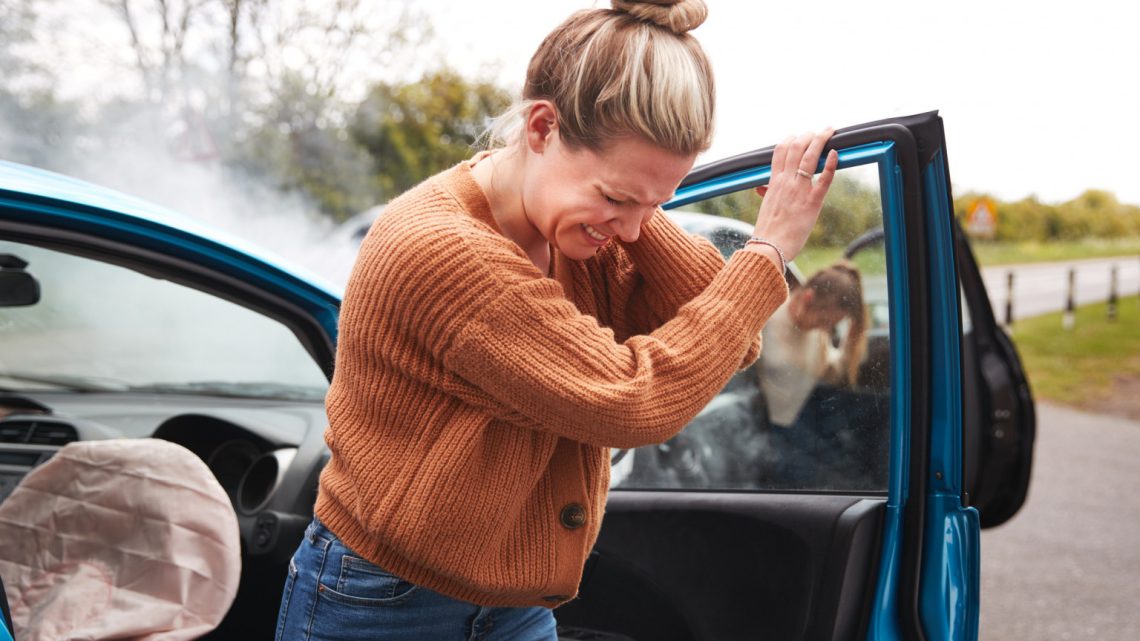Car accidents can devastate your body a lot more than just physically. Car accidents take a major toll mentally and emotionally for a lot of people. If you can relate, you’re not alone. According to a National Institute of Mental Health (NIMH) study, 39.2% of motor vehicle accident survivors develop PTSD. Here, we discuss what you should look out for emotionally after a wreck, and some resources for recovery.
What is PTSD?
Post-traumatic stress disorder (PTSD) is a mental health disorder that can happen when someone witnesses or experiences a traumatic or life-altering event. These events can include but are not limited to: physical, emotional, and sexual abuse; assault; natural disaster; water; and accidents. Many people who go through PTSD may have trouble coping and adjusting to normal daily tasks.
Why Do Car Accidents Cause PTSD?
Car accidents are a textbook example of a PTSD-prone experience. Victims of car accidents experience a traumatizing and life-changing event, sustaining damage to their body, property, and often finances. A strong perception that your life is in danger can prompt a cycle of coping behaviors that make you unable to properly process your emotions and lead to PTSD
According to Dani Mouri, a San Bernardino car accident attorney, “Even collisions involving minor or moderate injuries can create significant pressures that throw your life off track.” PTSD has justified no matter the severity of the accident, and seeking support is the most effective way to heal.
Signs You’re Struggling With PTSD After a Car Accident
After an accident, signs of PTSD usually begin within 3 months but can sometimes happen later. Having PTSD can make daily tasks difficult to accomplish. Symptoms may improve over time, but if they do not get better and interfere with your daily tasks, you may have PTSD. Most symptoms of PTSD fall into four categories: intrusion, avoidance, alteration in reactivity and arousal, and alteration in cognition and mood.
Avoiding Reminders
Avoiding reminders is a common reaction after a traumatic car accident. People who have PTSD commonly avoid or push away emotions about the event as well as any other emotions they may be feeling. Avoiding emotions only suppresses feelings temporarily and may end up encouraging bad behavior which can include substance and drug abuse.
Changes in Behavior and Emotional Reactions
If you are stressed or come across a reminder of your trauma, you may react differently than you may have prior to the accident. Some common changes in behavior include irrational outbursts, feelings of danger, trouble sleeping, guilt or shame, trouble concentrating, and being easily frightened.
Struggling With Nightmares
Your subconscious cycling through your traumatic event is a clear indication that PTSD is present. People struggling with PTSD are reported to experience nightmares 70%-96% of the time. Creating a nightly relaxation routine can help minimize a stressful sleep, or even take more extensive measures: There are nightmare-specific therapies, such as Image Rehearsal Therapy, that can help.
Mental Health Problems
According to Orange County injury attorneys at DiMarco | Araujo | Montevideo, accident victims may experience other mental health problems including anxiety, depression, self-harm, suicidal thoughts, and dissociative disorders. PTSD and depression have common symptoms which include loss of interest, trouble sleeping, or emotional outbursts. If you are having trouble getting your life under control or having disturbing thoughts and feelings, it is important to get treatment as soon as possible to help prevent your symptoms from getting worse.
Recovery Options For PTSD Victims
It’s not only understandable that car accidents cause PTSD, but expected. There are professionals and organizations dedicated to this kind of recovery. If you’re feeling like making progress with your PTSD from a car accident is impossible, try to wake up and recommit to the process and the people willing to help. If you’re looking for some resources, here are a few recommendations.
- Substance Abuse and Mental Health Services Administration’s national helpline. It’s a free, confidential, 24/7 treatment referral and information service for anyone facing mental struggles. Call 1-800-662-4357 with any questions you may have.
- PTSD therapy. Not all types of therapy will be effective for treating PTSD, but some can be highly effective. The American Psychology Association strongly recommends one of these four types of therapy:
- Cognitive-behavioral therapy
- Cognitive processing therapy
- Cognitive therapy
- Prolonged exposure
- Programs run by community organizations. Reach out to community organizations (like the YMCA) to see if they offer therapy or support groups. If not, Mentalhealth.gov and the National Mental Health Consumers’ Self-Help Clearinghouse both have online directories you can search locally.
- Employee support programs. Consult with your HR department about your free mental health benefits options.
If you are unsure of what type of therapy might be best for you, check out this treatment comparison chart.
This article was co-authored by Allison Rose.



No Comment